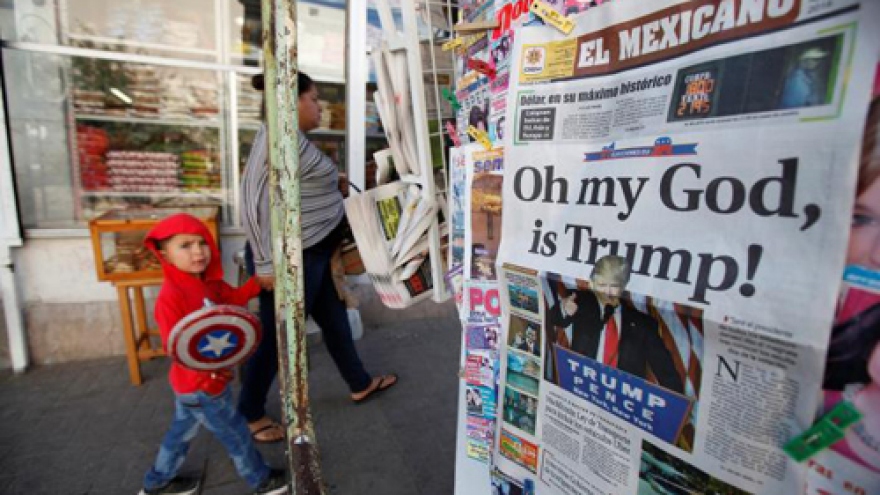In second day of anti-Trump protests, civil rights a top concern
Demonstrators took to the streets across the country for a second day on November 10 to protest the Republican presidential election victory of real estate mogul Donald Trump, voicing fears that his triumph would strike a blow against civil rights.
 |
| Students hold a sit-in in front of City Hall protesting the election of Republican Donald Trump as President of the United States in San Francisco, California, U.S. November 10, 2016. REUTERS/Elijah Nouvelage |
About 100 protesters marched from the White House, where Trump had his first transition meeting with President Barack Obama on November 10, to the Trump International Hotel blocks away, chanting "love Trumps hate."
Later in the day in Los Angeles, a small band of anti-Trump protesters marched onto a freeway near downtown, blocking traffic until police cleared them away.
Trump's critics have expressed concern that his often-inflammatory campaign rhetoric about immigrants, Muslims, women and others - combined with support he has drawn from the Ku Klux Klan and other white supremacists - could spark a wave of intolerance against various minorities.
Anti-Trump rallies were held in more than a dozen major U.S. cities on November 9, with thousands turning out for each of the biggest gatherings - in New York, Los Angeles and Oakland, California. In Oakland, unruly protesters smashed windows, set fires and clashed with riot police.
A Trump campaign representative did not respond to requests for comment on the protests. Taking a far more conciliatory tone in his acceptance speech early November 9 than he had at many of his campaign events, Trump vowed to be a president for all Americans.
Earlier this month, his campaign rejected a Klan newspaper endorsement, saying Trump "denounces hate in any form."
Rudy Giuliani, the former New York City mayor and a high-profile Trump supporter, called the demonstrators "a bunch of spoiled cry-babies," in an interview with Fox News.
White House spokesman Joshua Earnest said Obama supported demonstrators' right to express themselves peacefully.




